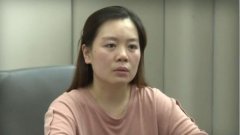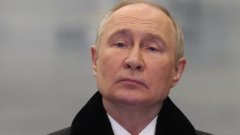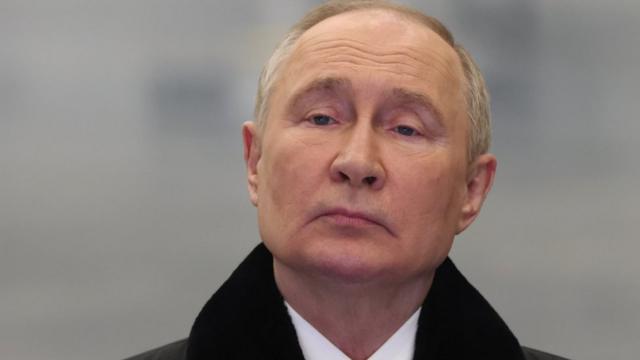
Russia held a three -day presidential election from March 15th to 17th. It is believed that Putin's fifth presidential election has become a foregone conclusion.
Vladimir Putin, 71, has been in power for more than 20 years.He was originally appointed as the President of the President by former President Yeltsin and won the first election in March 2000.
From 2008 to 2012, he changed his role as the Prime Minister, but he still completely controlled the power.At that time, the Russian Constitution stipulated that the president could only be re -elected for two sessions and turned to the Prime Minister for him to run again.
After revising the constitution in 2020, it is generally expected that Putin will continue to administration until 2036.
By then, he will become the longest rulers in Russia, surpass the Communist leader Stalin and Empress Catherine the Great in the 18th century. Both have been in power for more than 30 years.
Mobilize the people to vote
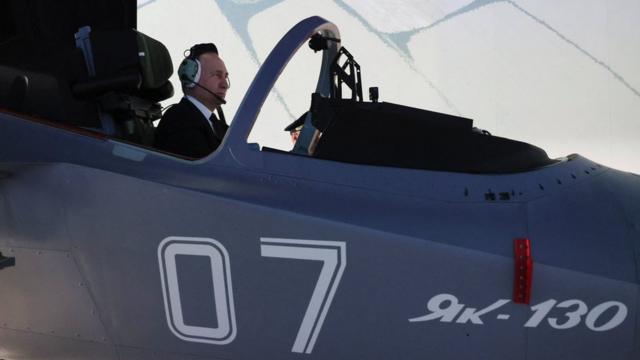
image source, AFP
Russian elections are rarely a nervous event, but elections are very important for the legitimacy and public opinion of the governors.
This time it is particularly important for Putin. He not only has to win, but also see a high voting rate and support rate, because Russia is involved in a comprehensive war. This war will have a continuous impact on Russia and the entire world throughout the world.Essence
For government officials, this election will test whether they have the ability to mobilize administrative resources and bring an overwhelming victory to the president.
Meduza, a Russian independent news website, reports that the Kremlin hopes that the voting rate will reach at least 70%, of which about 80%of the votes are voted to Putin.This will surpass his vote rate in 76.7%in 2018.
Media research found that in order to achieve such results, the Russian government's goal is to mobilize the country with department employees, that is, people from the central and local authorities and state -owned enterprises work, and encourage them to vote and support the current president.
Russia has about 122.3 million qualified voters.
This number includes Russian citizens living in the territory of Ukraine, the scope of Crimea and Donbas, which is illegally taken over by Russia in 2014, and eastern Ukraine and the occupied in February 2022Other parts of the south.
another 1.9 million Russian citizens who live abroad are qualified to vote, of which 12,000 people live in neighboring Kazakhstan, and Russia rented the Bykoner Aerospace Launch Base in the local area.
War and Election
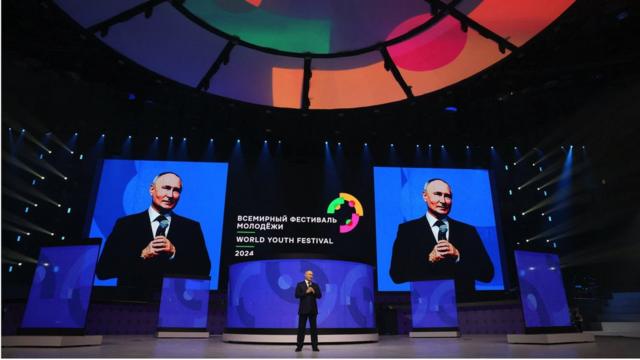
image source, AFP
Putin delivered a speech at the World Youth Festival on the eve of the presidential election.
Putin attended multiple events during the campaign, mainly meeting students and workers in different regions of Russia.
Although he avoids "special military operations", that is, Moscow's title of invasion of Ukraine, but the war is ubiquitous in the life of Russians: international sanctions, restricted travel, decrease in foreign goods, and EuropeIsolation with North America.
The war also took the life of tens of thousands or even hundreds of thousands of Russian soldiers.
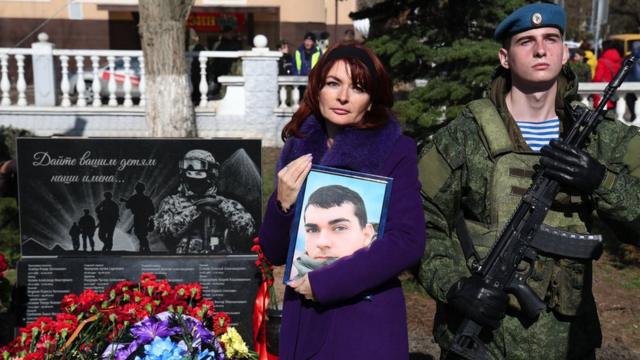
Image source, AFP
High voting rate and high support rate for president will increase the legitimacy of its subsequent decisions, and many of them will be directly related to invading Ukraine.
In the past 24 months, hundreds of thousands of Russians have left the country. Most of them are young people who have been educated and have a wealthy family, either because they do not agree with the war or they do not want to be called to join the army.
Even without participating in campaign, war is an important theme of the media, and the Russians cannot avoid it.
High voting rate and high support rate for president will increase the legitimacy of its subsequent decisions, and many of them will be directly related to invading Ukraine.
What are the candidates?
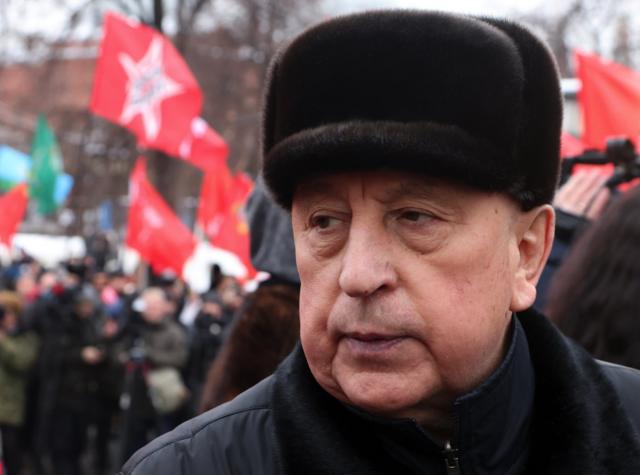
In addition to Putin, there are three other candidates registered in the register: Slutt, a conservative candidate for nationalististism, Harritino, the Communist Party candidate, and the new party's Dakov.Both of them expressed their support for Putin and Russia's war in Ukraine, and they did not constitute a real threat.
In addition to Putin, there are three other candidates registered in the book: Nationalist conservative candidate Leonid Slutsky, Communist candidate Nikolai Kharitonov, and the new party Vanke VankeVladislav Davankov.The new party is established and has a small number of representatives in the Duma House of Russia.
All three expressed their support for the war in Putin and Russia in Ukraine, and they did not constitute a real threat.
The real challengers of Putin have either entered jail, or have been destroyed, or they have escaped Russia.Putin's most intense opponent Navali died in a tight prison in February this year.
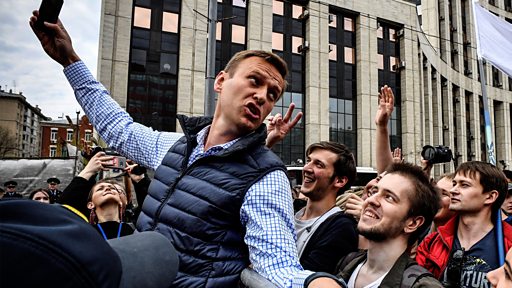
The death of Putin's most sharp criticIt was poisoned by neurotoxic agent.
Steve Rosenberg asked the candidate whether Harritino thought he would become a better president than Putin. He replied that this was not what he could say, and voters would "decide everything."He has been sanctioned by Western since 2022.
Leonid Slutsky, a member of the Russian Liberal Democratic Party (LDPR), has been accused of sexual harassment many times.He organized a state visit to the occupied Crimea and has been subject to international sanctions since 2014.
Vladislav Davankov's exposure on the media is the lowest.He is the co -founder of a cosmetics company and only received more than 5%of the votes in the Moscow mayor in 2023.While advocating "peace and negotiations" in the war with Ukraine, Dankef voted to support the annexation of Ukrainian territory, which also caused him to be subject to international sanctions.
As for the anti -war candidate Boris Nadezhdin, tens of thousands of Russians were lined up and signed, but they failed to register as a candidate.
Voting for three days
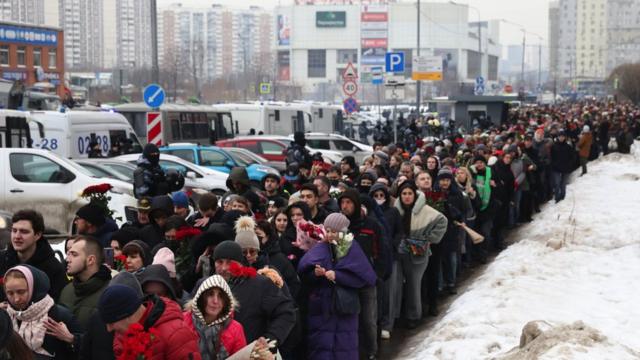
Large -scale publicly expressed support for Russia's opposition, but on March 1, thousands of people gathered together to participate in the imprisoned Putin critic NavaErni's funeral.
Russian voters will vote within three days from March 15th to 17th, which is the first time in the history of the country's presidential election.
The form of three -day voting appeared for the first time in the 2020 constitutional amendment vote, and voting to ensure public health during the new crown epidemic.Independent observers have raised criticism that it is difficult to ensure the transparency of the voting process, but this election uses this form again.
In addition, the presidential election will adopt a remote online voting system for the first time, mainly in areas that are famous for protesting voting or it is difficult to ensure the voting rate.
Russia has also been criticized for incorporating Ukraine's occupied territory into the election. It is reported that local residents are under pressure.
The European Security and Cooperation Organization (OSCE) Parliament Conference has sent observers to the Russian election since 1993, but has stopped in the past three years.
What can change?
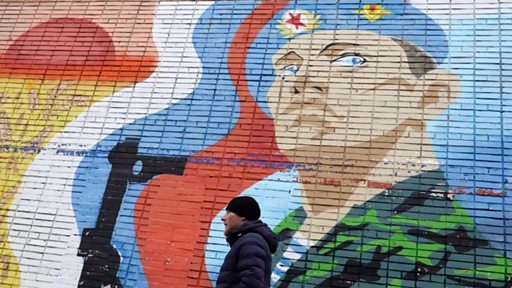
The two-year war how to change the two-year war to changeRussia
Russia has no independent public opinion investigation. Most Russians have obtained news from state -owned media, while state -owned media seriously favor Putin and their policies.
Experts believe that more Russians who have skeptical attitudes to the government are more than on the surface, but the minor moves supporting the opposition may be severely punished, so the disagreement people dare not publicize publicly.
Navari widow Ulia called on compatriots to resist voting and asked the foreign government to not recognize the results of the election.
The latter is unlikely to come true, but the former may happen.The Russian independent media Merusha quoted a source close to Putin that the authorities were really worried about the low vote rate."If people do not doubt that the current president will win, why should they go to vote?"
The most likely result of this election is Putin's convincing victory, at least on paper.
But low voting rate will mean weakening the support of the president, which in turn may bring stricter national control, causing Russia to further fall into the atmosphere of fear and oppression.

